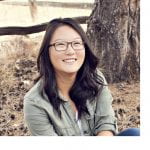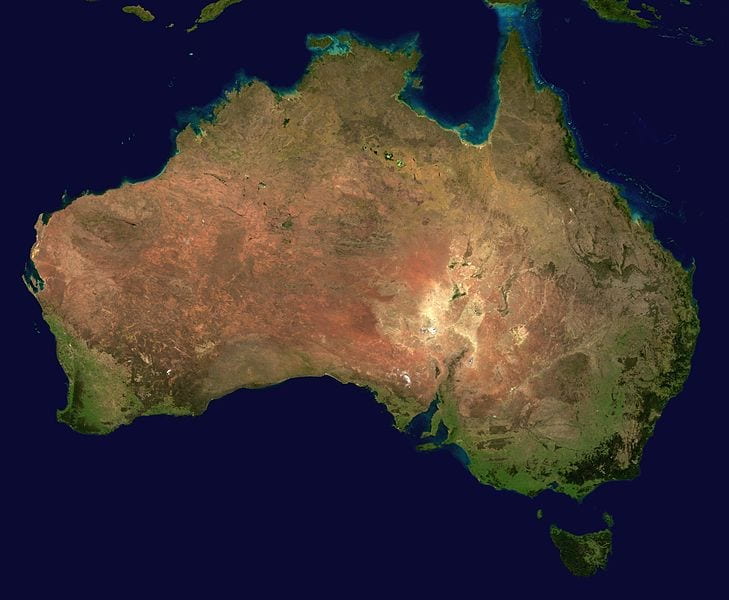A Viewpoint on the Great Australian China Debate
By Yehna Bendul, Research Staff Assistant, Sigur Center for Asian Studies
Earlier this year, Australia passed legislation that would combat and criminalize malicious foreign interference. While the laws were not targeted at a single country, Australia’s recent banning of high-profile Chinese companies from developing its 5G network suggests that Australia’s most immediate concern is China. On September 10th, 2018, the Sigur Center hosted Professor Rory Medcalf for a presentation titled “The Great Australian China Debate: Issues and Implications for the United States and the World.” Professor Medcalf is the Head of the National Security College at the Australian National University in Canberra and has had a career in diplomacy, intelligence analysis, and journalism. With this unique perspective, Professor Medcalf aimed to answer the question of how to manage rising Chinese power and assertiveness in a way that neither leads to conflict nor contradicts Australia’s national interests and values.
According to Professor Medcalf, Australia’s relationship with China has been long and only recently complicated. Australia is home to around 1.2 million residents of Chinese heritage that include both recent immigrants and well established communities that go back to the 1850s. Medcalf explained that this deep societal connection and China’s role as Australia’s largest trading partner created the perception of a good relationship. However, tension in the relationship became most evident in the last three or four years after what Medcalf calls a “reality check.”
This “reality check” included the recognition that China was not going to liberalize under Xi Jinping, that China has been taking advantage of Australia’s open democracy through its dominance of Chinese language media and its infiltration of Australian community organizations, and that resisting Chinese interference would only get more disruptive and difficult the longer Australia waited to act. These insights were first brought to the Australian public discourse by persistent journalists and intelligence agencies. Political parties and members of the business community were slower to pay attention to the issue due to dependencies on Chinese political donations and financial investments respectively.
Medcalf cited four reasons as to why China chooses to engage in disruptive activities in Australia. First, Australia is a key ally to the United States, so any disruption of Australia would also be a disruption to China’s main rival. Second, Australia has important technology and intelligence secrets. Third, Australia has a reputation of being outspoken and resistant against China. Lastly, China is interested in ensuring that the large populations of Chinese peoples in Australia are either supportive of the Communist Party of China or otherwise silent and passive.
As mentioned previously, Australia has taken steps to resist Chinese interference through a number of new laws that criminalize foreign attempts to disrupt Australian society, politics, and economy. However, the passage of these laws led to a period of intense heat and tension within the country due to worries that the broad definitions of criminal activity violate civil liberties and would promote racist tendencies. Medcalf outlined and responded to seven myths about Australia’s relationship with China that arose from these debates.
The first myth is that Australia faces a crude choice between committing to China or the United States. Medcalf called this a “characatured notion” of Australia’s interests and foreign relations that ignores the many levels at which foreign relationships function. The second myth is that Australia only pushed back against China as a proxy of the United States. Medcalf’s response was that Australia passed the new legislation for its own sovereign reasons and that, if anything, the United States has been the one to follow Australia’s resistance to China. The third myth is that national security institutions have taken over Australian policy making. Medcalf countered that the recent actions are new methods of solidarity and transparency and that caution towards China is a multilayered effort by the economic establishment, defense institutions, and domestic policy makers. The fourth myth is that everything will go back to how it was before the “reality check”. Medcalf pointed to “full bipartisan support” for the new laws as reason to believe change is permanent.
The fifth myth Professor Medcalf addressed was the idea that Australia will be more accommodating to Chinese preferences because of its economic dependency on Chinese businesses. Medcalf argued that Australia’s greater vulnerability is political and not economic, as Chinese economic leverage is limited by its equal dependency on Australian resources. The sixth myth is that resistance against China is influenced by racism and will unleash racist sentiments. Medcalf argued that careful outreach and public engagement can ensure that national interests will be protected in an inclusive way. The last myth is that Australia did not need new laws as they would be too prohibitive to civil society. Medcalf responded that bipartisan revisions to the law have eliminated these critiques.
Professor Medcalf ended his presentation with the actions he thinks Australia must take in the future to protect its national interests. He argued that the primary concern of Australia should be to distinguish between criminal interfereence and mere influence and diplomacy (with foreign interference being covert, coercive, or corruptive behavior). He then explained that the spirit of the China debate moving forward must be focused on finding a new equilibrium, not on rejecting China outright. Moreover, there must be consistent transparency and outreach to all parties involved including the Chinese-Australian communities, business communities, and other countries about Australia’s actions. Lastly, Medcalf stressed that Australia must be clear that it is acting in accordance with its own national interest and not as a pawn of U.S.-Chinese competition.
While Professor Medcalf briefly addressed the concerns of those opposed to Australia’s new laws, his responses seemed to downplay the gravity of dissent and did not engage with the core arguments of the opposition. This may just have been a function of time constraints on the presentation; however, it is still important to fully understand the hesitancy behind supporting Australia’s new laws given that Medcalf correctly suggested that many other liberal democracies may follow in Australia’s footsteps.
Australia’s new legislation created 38 new crimes and broadened the definition of multiple existing crimes like espionage. Those opposing these laws are concerned that the legislation can be implemented in ways that infringe upon civil liberties. The New York Times article “How Australia’s Espionage Laws Could Silence Whistleblowers and Activists” outlines several scenarios in which this would occur. Professor Medcalf mentioned that revisions to the laws have limited the potential for these negative repercussions; however, the amendments to which he referred to only narrowed secrecy offenses and allowed for a “public interest” defense for journalists. Political scientist Joseph Nye has not directly addressed Australia’s new legislation but would most likely join the opposition, as he posits that a democracy’s openness remains its best defense. In his article “How Sharp Power Threatens Soft Power,” Nye argues that democracies “have to be careful not to overreact [to Chinese and Russian sharp power], so as not to undercut their own soft power by following the advice of those who advocate competing with sharp power on the authoritarian model.”
Medcalf stated he was confident that the new legislation would act mostly as deterrence and thus would not lead to any prosecutions. However, the potential for Australia’s quality of democracy to be degraded warrants continued monitoring. Furthermore, Medcalf’s faith in the Australian parliamentary system and resilience of Australia’s civil society may not apply to other liberal democracies, so following this model may have even more dangerous consequences in the United States and elsewhere.
It is interesting to see this debate play out in public discourse, but it is also surprisingly intriguing to see it seep into popular culture. In 2016, Netflix released a show titled Secret City, which focused on an Australian journalist as she uncovers conspiracies involving Chinese attempts to interfere in Australian politics. The show ended on ominous notes, but hopefully reality will prove to be more positive.
 Yehna Bendul is a sophomore in the Elliott School studying Philosophy and International Affairs with a concentration in international politics. She is currently studying Spanish but is also interested in U.S. relations with East Asia. In her position as Research Assistant with the Sigur Center, Yehna hopes to learn more about other regions of Asia and develop a more holistic understanding of the continent.
Yehna Bendul is a sophomore in the Elliott School studying Philosophy and International Affairs with a concentration in international politics. She is currently studying Spanish but is also interested in U.S. relations with East Asia. In her position as Research Assistant with the Sigur Center, Yehna hopes to learn more about other regions of Asia and develop a more holistic understanding of the continent.


